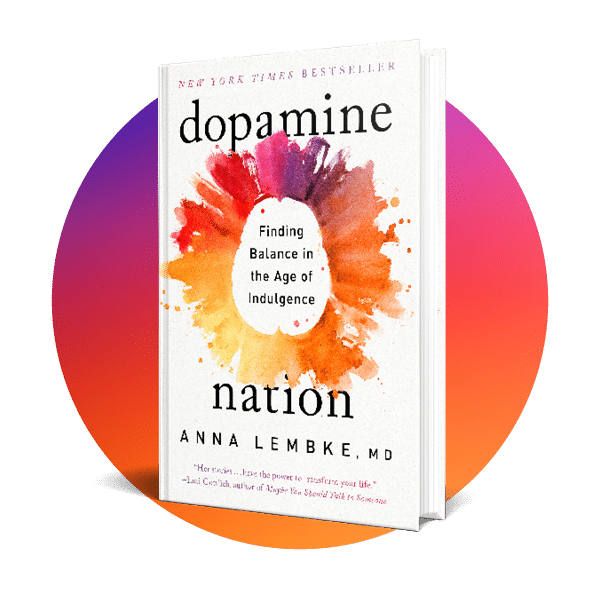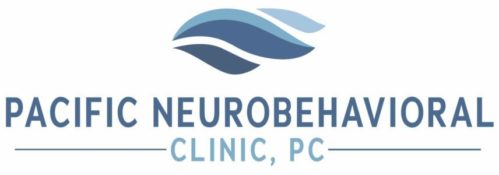-
Written by Beverly Sharifian, LPCC
In the modern era, our lives are characterized by constant connectivity, a barrage of notifications, and the constant pull of instant gratification. We live in a world where our smartphones are never out of reach and where the allure of social media and other digital temptations can hijack our brain’s reward system. Dr. Anna Lembke, a renowned addictions specialist, explores the impact of this digital age on our brains in her thought-provoking book, “Dopamine Nation.” Lembke provides valuable insights into the world of dopamine and addiction, shedding light on why we often find it hard to resist the allure of instant pleasure. In this blog post, we’ll delve into some essential tips from “Dopamine Nation” that can help us regain control of our lives and find contentment in the simple pleasures.
Understanding the Dopamine Loop
To effectively implement the tips from “Dopamine Nation,” it’s crucial to grasp the concept of the dopamine loop. Dopamine is a neurotransmitter associated with pleasure, reward, and motivation. It plays a significant role in our daily lives and can be triggered by various activities, from enjoying a delicious meal to receiving social media likes. However, in our digitally-driven world, this loop can become a never-ending cycle that keeps us hooked to our screens.
Another essential concept is that of binding, which refers to the connection between the addictive behavior, substance, or experience and dopamine. When we repeatedly engage in behaviors or consume substances that trigger a release of dopamine, our brains begin to associate those actions or substances with pleasure and reward. As a result, the binding becomes stronger over time, making it increasingly difficult to resist the urge to engage in the addictive behavior or consume the addictive substance.
Awareness is Key
The foremost step in finding contentment is acknowledging the impact of this dopamine loop on your life. Understand the difference between authentic gratification, which stems from meaningful experiences, and artificial pleasure, often gained through immediate gratification. Dr. Lembke encourages readers to reflect on their own behaviors and recognize the moments when they are being pulled into the cycle of dopamine-driven activities. She emphasizes the use of radical honesty and accountability to avoid the excessive dopamine loop.
Embrace Mindfulness
-
One of the most powerful tools to break free from the dopamine loop is mindfulness. Dr. Lembke suggests practicing mindfulness to become more aware of the present moment and your own feelings. This awareness can help you recognize your cravings for instant gratification and make better choices.
Seek Authentic Pleasure
-
To escape the never-ending dopamine loop, it’s essential to shift your focus towards activities that provide authentic pleasure. Engaging in meaningful, real-life experiences, such as spending time with loved ones, exploring nature, or pursuing personal passions, can help you find more lasting satisfaction.
-
Set Boundaries with Technology
-
While it’s unrealistic to completely disconnect from the digital world, you can regain control by setting boundaries with technology. Establish “tech-free” zones and times in your daily routine, allowing yourself the opportunity to disconnect from digital reality and ground yourself in the present.
Self-binding is a strategy that Dr. Lembke suggests to increase the barriers between yourself and the “addiction.” There are various forms of self-binding. Physical self-binding would, for instance, involve storing your television set (or more simply its power cord) somewhere inaccessible to prevent you from spending countless hours binging Netflix.
Categorical self-binding, on the other hand, would involve avoiding a particular category of television shows, such as reality shows. Perhaps you would disconnect the streaming service that has countless of your favorite reality shows available (Real Housewives or 90 Day Fiancé fans, this would be a good option for you).
Although this might sound painful, Dr. Lembke discusses the pleasure-pain principle, which purports that these experiences are both processed in the same area of the brain. Dr. Lembke makes a compelling case for why the brain works towards a balance between pain (resisting your favorite television show or category of shows at times) and pleasure (binge watching regardless of your responsibilities). You can help your brain restore this balance by implementing healthy boundaries.
Build Healthy Habits
-
In “Dopamine Nation,” Dr. Lembke emphasizes the importance of cultivating healthy habits, such as regular exercise, a balanced diet, and adequate sleep. These lifestyle changes can have a significant impact on your brain chemistry and help further balance dopamine levels.
Another form of self-binding that may facilitate the restoration of balance is chronological self-binding. This involves abstaining from an “addiction” for a specific period of time. You have likely heard of the terms “digital detox” and “dopamine fast” where people vow to abstain from technology or social media in the first instance and any category of addiction in the second. Dr. Lembke states that this type of self-binding can facilitate moderation. Once you have established more balance, you can then use time as a strategy for self-binding and limit these behaviors or substances appropriately.
Connect with Others
-
Satisfaction is often found in human connection, given that we are social beings. Building and nurturing meaningful relationships can be a powerful antidote to the constant cravings for artificial pleasure. Prioritize face-to-face interactions and invest time and energy in fostering genuine connections with others. Giving to others can be gratifying, this includes time, resources, or even simply empathy. Dr. Lembke explains that when balance is restored in the brain, we gain much more from the simple pleasures in life which may have previously been numbed by the dopamine loop.
Most people engage in some form of instant gratification, especially given that it is now abundantly available at our fingertips with smartphones. “Dopamine Nation” sheds light on how technology perpetuates the dopamine loop of instant gratification. This article briefly covers some of the concepts in “Dopamine Nation,” but I encourage you to read the book for a comprehensive understanding. By understanding the impact of dopamine in our lives and implementing the tips from Dr. Lembke’s book, you can regain control and live a more fulfilling life. Remember that authentic pleasure, mindfulness, and healthy habits are your allies on this journey towards breaking free from the shackles of the digital age. It’s time to take charge of your life and rediscover the joy of authentic experiences.
- References:
- Hu, E. (2022, April 4). Too much pleasure can lead to addiction. How to break the cycle and find balance. NPR. other. Retrieved October 20, 2023.
- Lembke, A. (2023). Dopamine nation finding balance in the age of indulgence. Headline Publishing Group.

